Illustration Tutorial: How to Color with Watercolor
Learn how to add color to your illustrated stories simply and easily with Paula Bossio
Watercolor offers an interesting way to add color to your drawings. Its flexibility allows for an original style that's worth trying out and experimenting with.
In this tutorial, graphic designer, illustrator and author Paula Bossio (@paulabossio) explains how to use it to bring color to your work. Prepare your sketch and let's go!
5 steps to color your drawings with watercolor
1. Collect your materials
Once you have your sketch, you'll need the following materials:
If you're not sure between traditional brushes and brush pens, keep in mind that brush pens are a practical option as you do not need to stop painting to add more water. However, the decision depends on your personal preference.
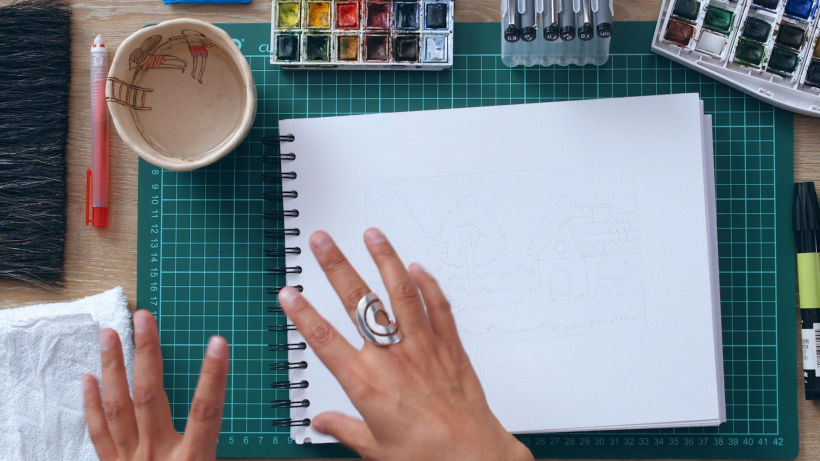
2. Mix tones and colors
To give more originality to your illustration, try to avoid block colors. Instead, combine different tones and pigments to give it a different touch.
If you haven't cleaned your watercolor kit since the last time you used it, take the opportunity to consider whether that mix of colors could provide that vibrancy.
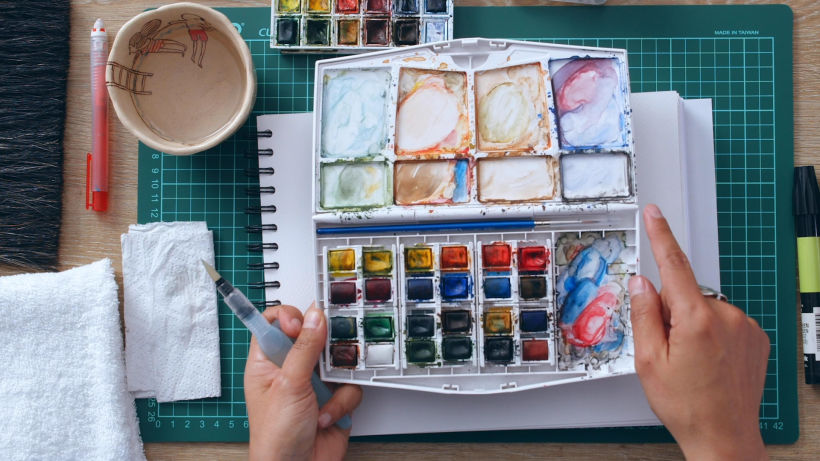
3. Start the first layers
Although it may not seem so, watercolor is a slow process that requires patience: you have to wait for each layer to dry before starting the next to see how it will look on paper.
That's why it's best not to paint in an opaque manner. The first layers should be light, with a lot of water and little pigment. That way, the layers will be more transparent and will add an initial tone to your illustration.
Let the layer dry as you go to prevent the colors mixing but don't worry too much if your brushstrokes cross the drawn lines, that's normal for this kind of painting and it won't ruin the picture.
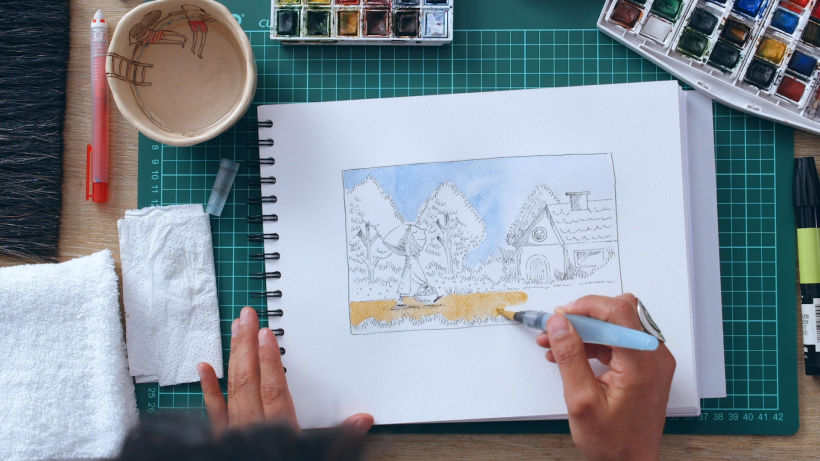
4. Paint the second layer
Once you've let the first thin layer dry, it's time to add a second with more detail, depth, and shade.
Start by choosing a light source, its position will show us where to shade and color. For the shadows, use more pigment or change to a darker color.
Don't use black for grey shadows, it's always better to mix in a little blue or even blue with a coffee color, according to the tone you want to achieve.
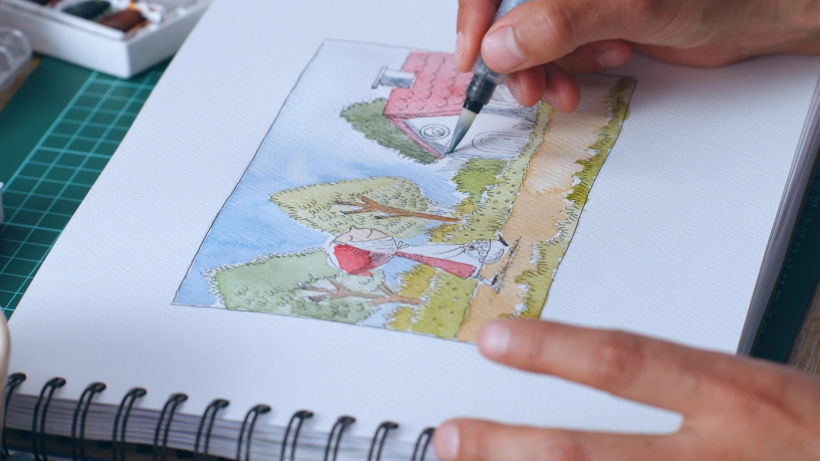
5. Add details to the illustration
The best way to achieve detail and depth is to repeat the process we've explained, adding more details and shadow patiently, layer by layer, letting the paint dry every time so you can see how the tone really looks before adding another color.




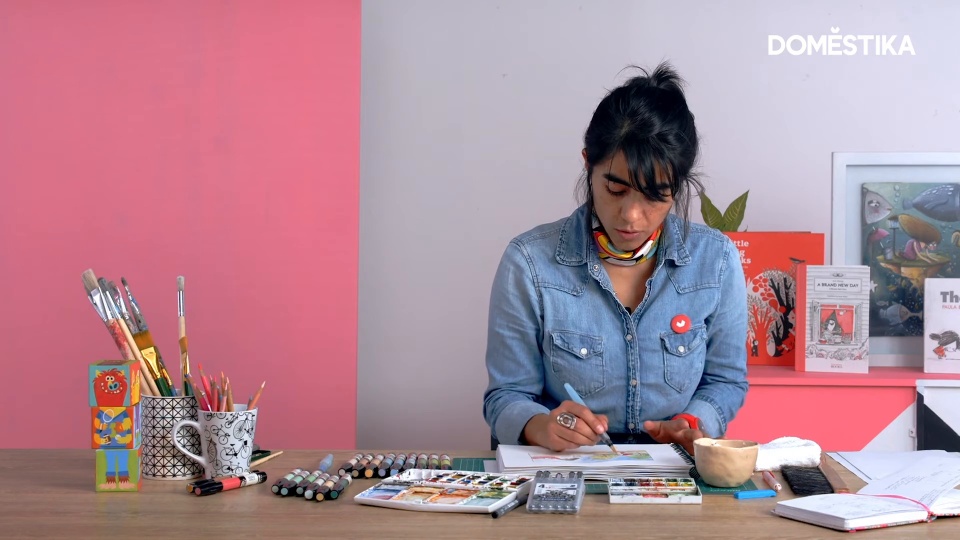
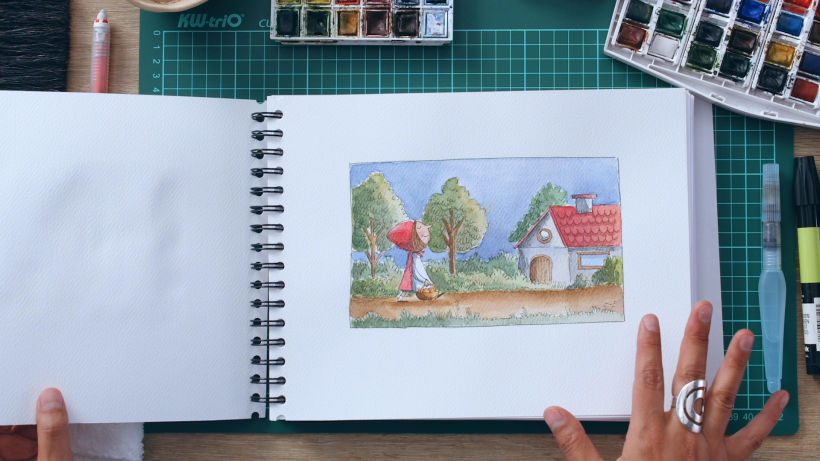



0 comments